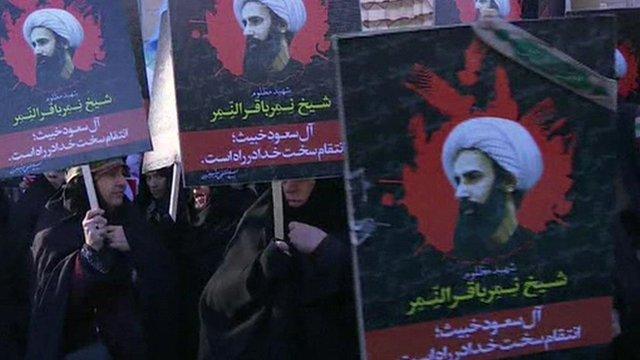Saudi Arabia's allies Bahrain, Sudan and UAE act against Iran
- Published
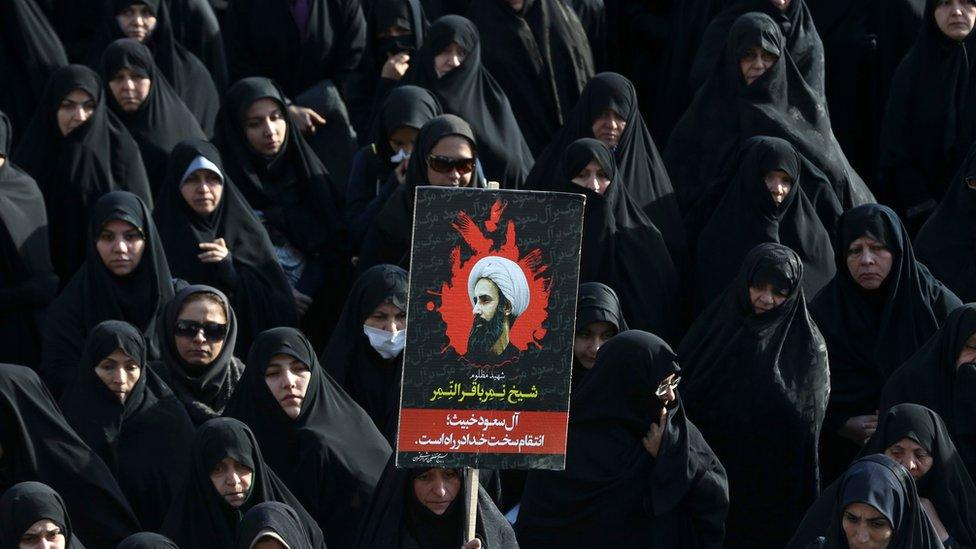
Monday saw the third day of protests in Iran against Sheikh Nimr al-Nimr's execution
A number of Saudi Arabia's allies have joined diplomatic action against Iran after the Saudi embassy in Tehran was attacked amid a row over the execution of a Shia Muslim cleric.
Bahrain and Sudan have both severed relations with Iran, and the UAE has downgraded its diplomatic team.
Saudi Arabia on Sunday severed ties and gave Iran's diplomats two days to go.
Saudi Foreign Minister Adel al-Jubeir said trade links with Iran would be cut and air traffic links stopped.
But in an interview with Reuters news agency, Mr al-Jubeir also said Iranian pilgrims travelling to holy sites in Mecca and Medina would still be allowed to enter.
Saudi Arabia and Iran are respectively the key Sunni and Shia powers in the region and back opposing sides in Syria and Yemen.
On Monday, a White House spokesman called on both countries to "show some restraint and to not further inflame tensions that are on quite vivid display in the region".
Great rivalry explained: Why don't Iran and Saudi Arabia get along?
Spiralling tensions: Why crisis is 'most dangerous for decades'
How row is playing out: Iran and Saudi media reaction
Sheikh Nimr al-Nimr: Who was leading Saudi Shia cleric?

Saudi Arabia and Iran - key figures
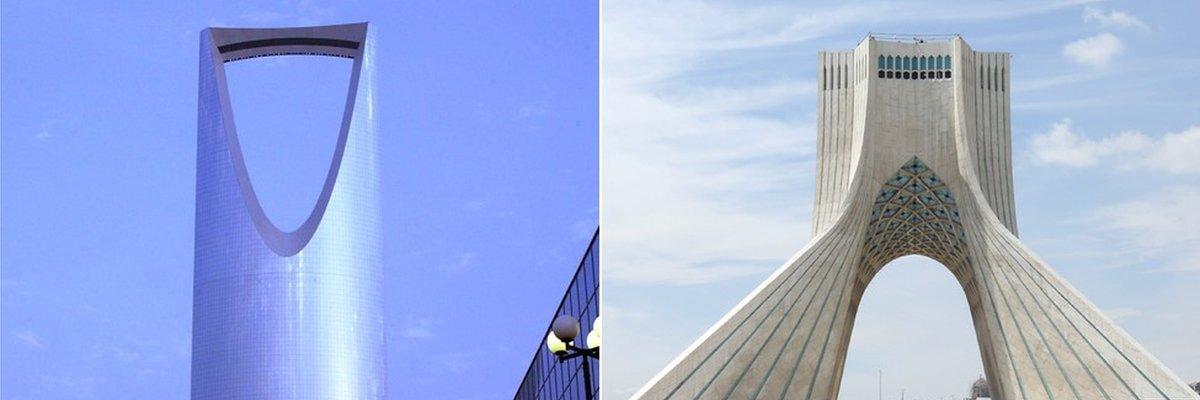
Population: Iran 81.8m; Saudi Arabia 27.7m
GDP: Iran $416.5bn; Saudi Arabia $746.2bn
Export trade/year: Iran - Saudi Arabia $111m; Saudi Arabia - Iran $79.4m
Active army size: Iran 545,000; Saudi Arabia 233,500
Defence spending: Iran $6.3bn; Saudi Arabia $56bn
(Sources: CIA country guide, World Bank, the OEC, Global Firepower. Figures are for latest available year)

Bahrain, which is ruled by a Sunni monarchy but has a majority Shia population, on Monday gave Iranian diplomats 48 hours to leave the country.
It accused Iran of "increasing, flagrant and dangerous meddling" in the internal affairs of Gulf and Arab states.
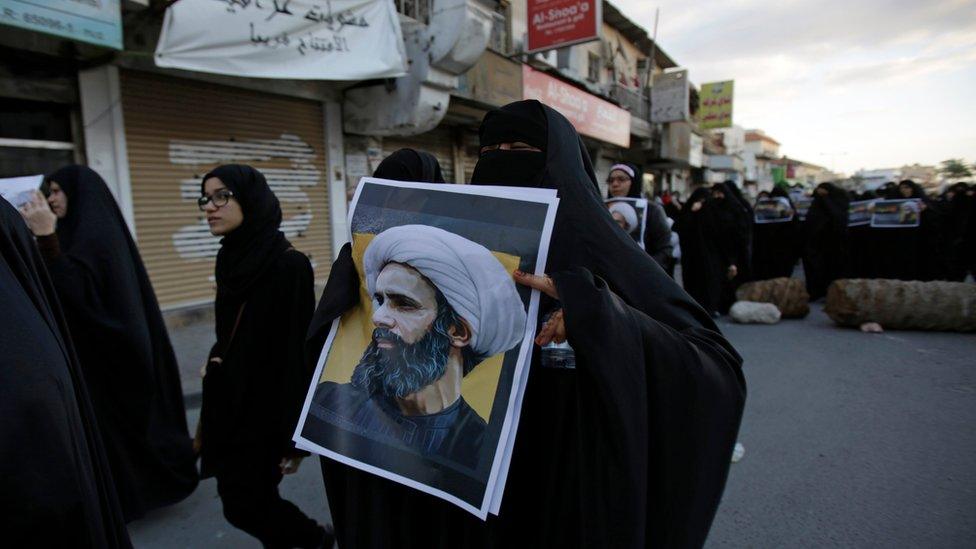
Protests have taken place in Bahrain against Sheikh Nimr al-Nimr's execution
It said the attack on the Saudi embassy was part of a "very dangerous pattern of sectarian policies that should be confronted... to preserve security and stability in the entire region".
Bahrain, which hosts the US Navy's 5th Fleet, has frequently accused Iran of fomenting unrest in the country since 2011 - a charge Tehran denies.
After demonstrations over the weekend, further protests were held by the Shia Muslim community in Bahrain on Monday.
A Sudan foreign ministry statement read: "In response to the barbaric attacks on the Saudi Arabian embassy in Tehran and its consulate in Mashhad... Sudan announces the immediate severing of ties with the Islamic Republic of Iran."

Sunni-Shia divide
The split arises from a dispute soon after the death of the Prophet Muhammad in 632 over who should lead the Muslim community
Sunnis are estimated to make up between 85% and 90% of Muslims
Though the two branches have co-existed for centuries and share many fundamental beliefs and practices, differences lie in the fields of doctrine, ritual, law, theology and religious organisation

The United Arab Emirates is downgrading its diplomatic representation in Tehran, including a recall of its ambassador, but has said it will continue trade links.
There are fears sectarian strife may spread in the region following the execution of Sheikh Nimr al-Nimr and 46 others in Saudi Arabia on Saturday after they were convicted of terror-related offences.
On Monday, two Sunni mosques in Iraq were bombed and the Sunni imam of another killed.
Saudi justice ministry spokesman Sheikh Mansour Al-Ghefary: "We apply Sharia law according to the facts we see"
Saudi Arabia announced late on Sunday that it was severing diplomatic relations with Iran after demonstrators stormed the Saudi embassy in Tehran. Protesters set the building on fire before being driven away by police.
Iran's foreign ministry on Monday accused the Saudis of "continuing the policy of increasing tension and clashes in the region".
Ministry spokesman Hossein Jaber Ansari said: "Saudi Arabia sees not only its interests but also its existence in pursuing crises and confrontations and attempts to resolve its internal problems by exporting them to the outside."
He defended Iran's response to the embassy attack, saying it had "acted in accordance with its obligations to control the broad wave of popular emotion". Fifty arrests were made.

Analysis: Jonathan Marcus, BBC diplomatic correspondent
One by one, Saudi Arabia's friends in the region are backing the kingdom in its growing dispute with Iran.
Ties between Iran and Bahrain have long been difficult; influenced by many of the same factors that have poisoned Saudi-Iranian relations.
Bahrain claims that Iran is behind much of the recent turmoil afflicting that country. The United Arab Emirates has downgraded relations, but will continue longstanding trade links with Iran.
The demise of Saddam Hussein in Iraq - who always served as an Arab counter-weight to Tehran - has resulted in a growing regional role for Iran, which the Gulf Arabs see as a serious threat.
The US-Iran nuclear deal has also increased sensitivities in the region as has the continuing struggle in Syria, in which the Gulf Arabs and Tehran are on very different sides.

In other developments:
A leaked memo by the commander of the Saudi interior ministry's Special Emergency Force, seen by the BBC, appears to show counter-terrorism units across the country were ordered to cancel holidays and operate at "100% capacity" from Friday morning - the day before the execution - as "maximum precaution"
Police come under heavy gunfire in Sheikh Nimr's hometown, Awamiya in Saudi Arabia's Eastern Province, on Sunday night, leaving one civilian dead and a child injured
The prices of oil and gold rise following the discord between Tehran and Riyadh
US Secretary of State John Kerry and UN Secretary General Ban Ki-moon speak to Iranian and Saudi officials - Mr Ban urges both parties to "avoid any actions that could further exacerbate the situation", a UN spokesman says
- Published4 January 2016
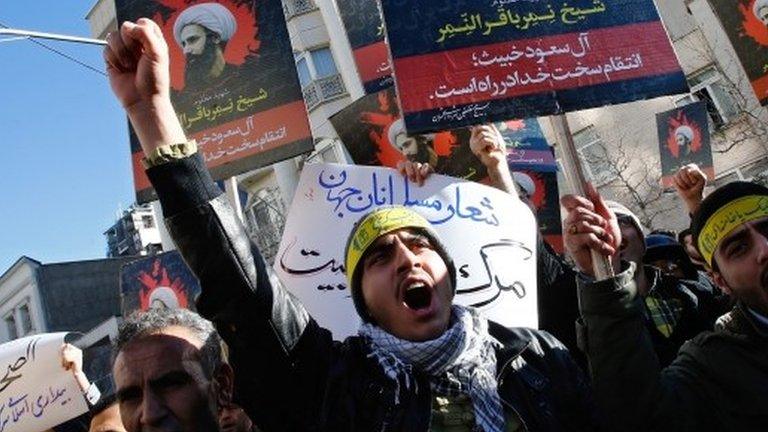
- Published2 January 2016
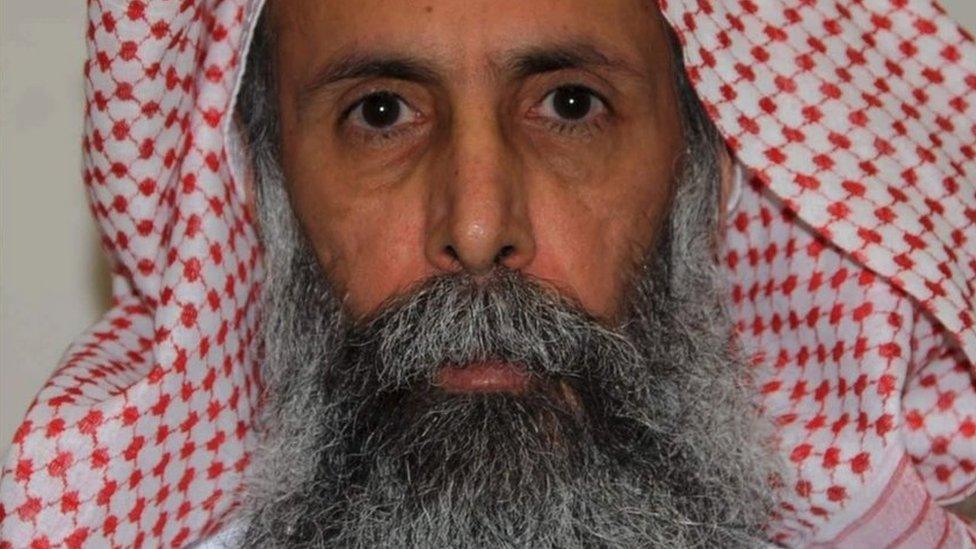
- Published4 January 2016
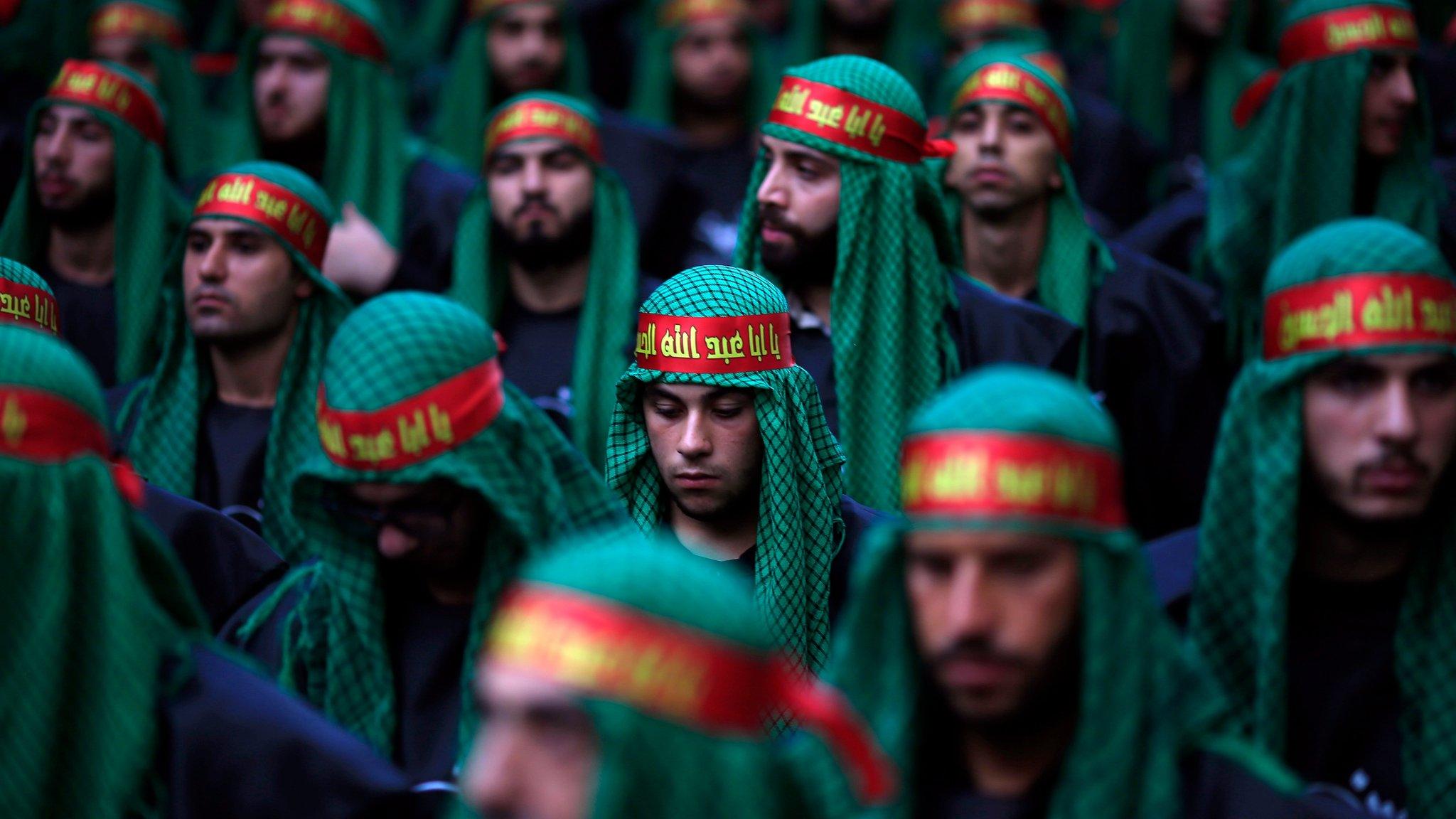
- Published4 January 2016
